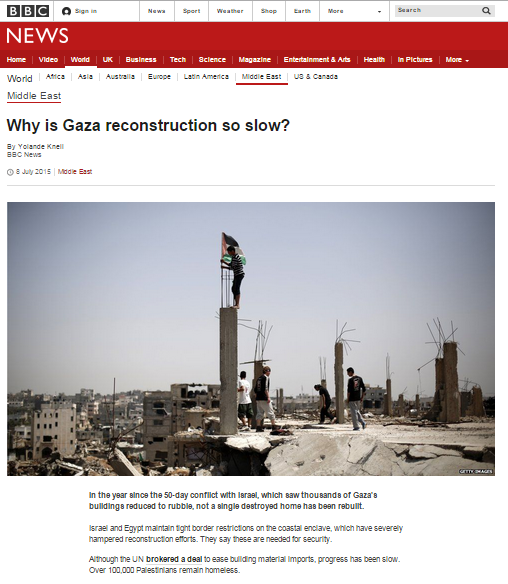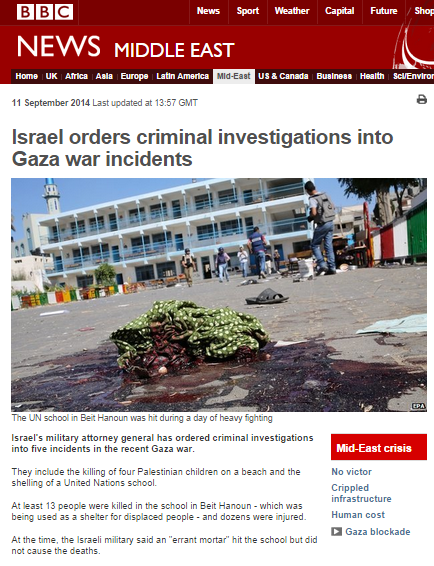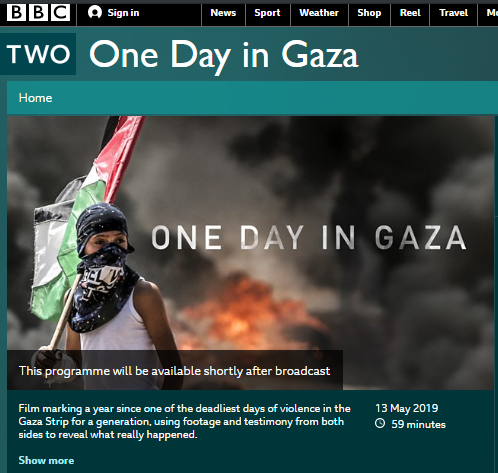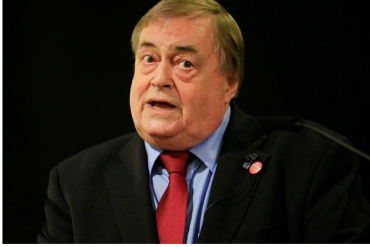On October 14th the BBC World Service radio programme ‘Newsday’ broadcast an item billed as “Israeli and Palestinian Voices” – ostensibly to provide listeners with answers to the question “what’s it like living in Israel with all of this going on?” – with “all of this” being the wave of terrorism perpetrated by Palestinian attackers.
In the first part of the item, listeners heard from two Israeli women who talked about their personal ways of coping with the wave of terrorism such as going out with pepper spray, not wearing high heels or standing in selected places at a bus stop.
The second part of the item featured a person identified as “a Palestinian woman called Mariam Barghouti” and listeners heard statements which included the following. [all emphasis added]
“…most universities that are getting attacked are ones like al Quds University in Abu Dis which is neighbouring to Jerusalem. Today Israeli forces raided the university, shot tear gas. Students had to be evacuated, professors had to drop their classes and go and make sure students are OK instead of teaching their lessons.”
(It is not clear to which incident Barghouti is referring in that claim but on October 13th a demonstration against the visiting Indian president did take place at that location, forcing the cancellation of a scheduled event. Other incidents have also taken place both recently and in the past, with al Quds University long known for extremism on campus.)
“I mean as we speak right now, two young girls 16 and 13 have been missing since four in the afternoon and there are fears that they may have been kidnapped by settlers.”
(According to Palestinian sources, the two sisters had been detained by the police.)
“At this point they’re [Barghouti’s friends] basically telling each other ‘don’t even look Palestinian’ because if you so much as sneeze and a settler feels frightened they can yell ‘shoot them, shoot them’ and soldiers will abide by that.”
(There are of course rules of engagement which clearly define the circumstances under which live fire can be used by the security forces.)
“This is the generation from 1994 onwards. All they’ve known is the Palestinian Authority’s failure. All they’ve known is the apartheid wall. All they’ve known is these checkpoints. You know, Israeli violence is not new – it’s only in the news now because there’s a Palestinian reaction to it.”
(No effort is made by the programme’s presenter to challenge the delegitimising and inaccurate term “apartheid wall” or to clarify to listeners that the anti-terrorist fence came about because of Palestinian terrorism.)
The October 14th edition of another BBC World Service radio programme – ‘Newshour’ – also aired (from 01:12 here) the obviously false claim from Barghouti (described as “a Palestinian student in Ramallah”) that:
“At this point they’re basically telling each other ‘don’t even look Palestinian’ because if you so much as sneeze and a settler feels frightened they can yell ‘shoot them, shoot them’ and soldiers will abide by that.”
Clearly the highly politicized and materially misleading account provided by Mariam Barghouti is very different from the personal stories told by two Israeli women but there is nothing surprising about that when one considers that, among many other things, Barghouti has been on tour with the International Solidarity Movement in Holland, is an active supporter of the BDS Campaign and is a contributor to the ‘Mondoweiss’ website.
The trouble is that neither of those BBC World Service programmes bothered to inform their listeners that the ‘woman in the street’ supposedly giving them a view of ‘what life is like’ is actually a seasoned political activist with a very clear anti-Israel agenda.
In November 2012 the BBC’s ECU reconfirmed “the importance of clearly summarising the standpoint of any interviewee where it is relevant and not immediately clear from their position or the title of their organisation” – in accordance with the corporation’s editorial guidelines on impartiality.
Passing off a known political activist as a random woman and providing her with a platform to promote what the BBC knows full well to be blatant propaganda is clearly not in keeping with the spirit of those editorial guidelines on impartiality or the accompanying editorial guidelines concerning accuracy.
Related Articles:
Thinly disguised promotion of anti-Israel activism on BBC WS ‘Boston Calling’
Donnison’s ‘woman in the Ramallah street’: professional anti-Israel campaigner




